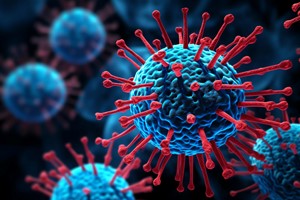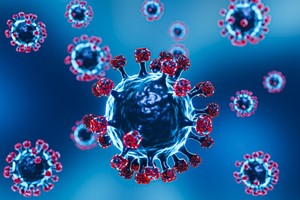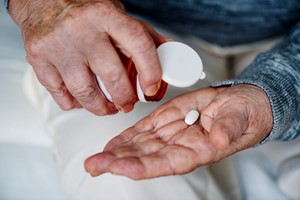In the ongoing battle against viral infections such as influenza and dengue fever, recent advancements in antiviral drug development offer promising prospects for treatment and prevention. A collaborative effort between researchers from St. Jude Children’s Research Hospital, University of Houston, Tufts University School of Medicine, and Fox Chase Cancer Center has resulted in the creation of a groundbreaking drug capable of preventing flu-induced lung injury. This development, published in the prestigious journal Nature, marks a significant milestone in combating the potentially life-threatening consequences of influenza virus infection.
The newly developed drug, named UH15-38, demonstrates a unique ability to strike a delicate balance between suppressing excessive inflammation and enabling the immune system to effectively combat the virus. Through a series of experiments using mouse models, researchers observed that UH15-38 significantly increased survival rates and alleviated symptoms associated with influenza infection. Remarkably, even when administered days after infection, the drug continued to provide substantial benefits, a feat rarely achieved in influenza therapeutics.
Dr. Paul Thomas, co-corresponding author of the study from St. Jude’s Department of Host-Microbe Interactions, emphasized the drug's potential to address an unmet medical need by extending the window for effective treatment beyond the initial stages of infection. Traditional antiviral drugs often require early administration to be effective, posing challenges for patients who present with severe disease after several days of infection. UH15-38 offers a promising solution by targeting the mechanisms underlying influenza-induced lung injury while preserving crucial aspects of the immune response necessary for viral clearance.
Central to the drug's mechanism of action is its ability to modulate inflammation by inhibiting Receptor-Interacting Protein Kinase 3 (RIPK3), a key regulator of cell death pathways in response to infection. By selectively blocking necroptosis, an inflammatory form of cell death, while preserving apoptosis, UH15-38 mitigates lung inflammation and prevents collateral damage to vital respiratory cells. This targeted approach not only improves survival outcomes but also enhances lung cell viability, as demonstrated in preclinical studies.
Meanwhile, in the fight against dengue fever, Hyundai Bioscience has unveiled a pioneering strategy to develop a broad-spectrum antiviral drug effective against all four serotypes of the dengue virus. Leveraging niclosamide, a known antiviral agent, the company has successfully repurposed the drug to combat dengue fever, Zika, Chikungunya, and Yellow fever viruses. Through innovative drug delivery systems, Hyundai Bioscience overcame previous challenges associated with niclosamide's low absorption and short half-life, paving the way for the development of Xafty®, a novel formulation poised to revolutionize dengue treatment.
Clinical trials conducted by Hyundai Bioscience have demonstrated Xafty®'s safety and efficacy in treating COVID-19, showcasing its potential to address a wide range of viral infections. With plans for global clinical tests aimed at securing emergency use authorization, Hyundai Bioscience aims to address the urgent need for effective dengue therapeutics in regions heavily impacted by mosquito-borne illnesses. By targeting multiple viral serotypes and facilitating early intervention, Xafty® holds promise as the world's first broad-spectrum antiviral drug for dengue fever, offering hope to millions of patients worldwide.
As the world continues to grapple with the challenges posed by infectious diseases, these recent advancements in antiviral drug development represent significant strides towards improving patient outcomes and reducing the global burden of viral infections. With further research and clinical validation, these groundbreaking therapies have the potential to transform the landscape of infectious disease management, ushering in a new era of effective treatments and prevention strategies.
foodHQ Staff













